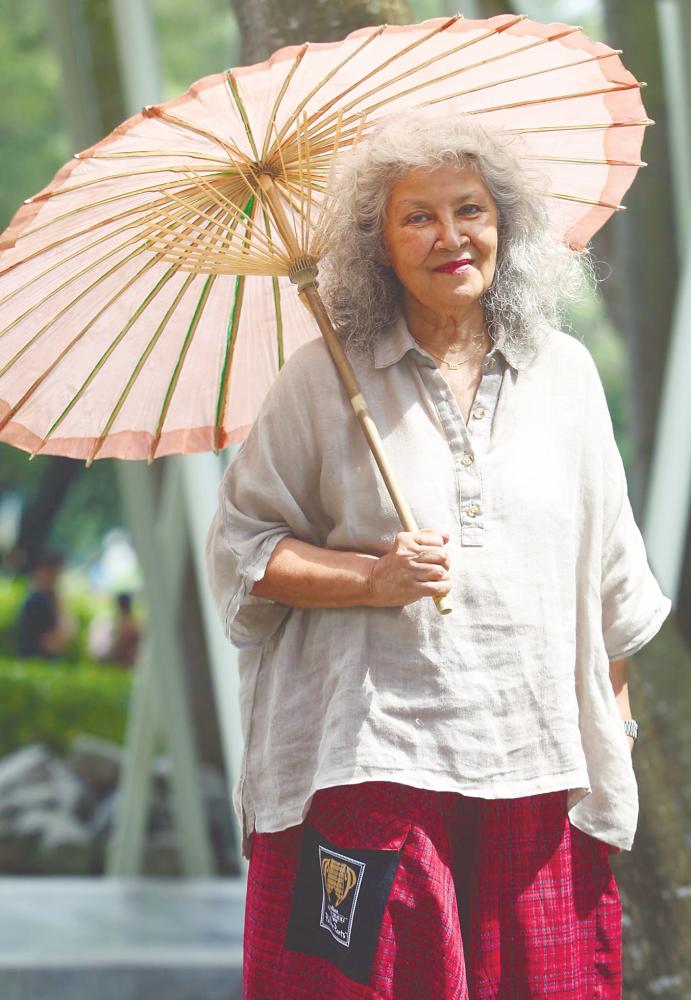ACTORS STUDIO co-founder Datuk Faridah Merican first presented Chinese playwright Tsao Yu’s literary masterpiece, the family drama Thunderstorm, in English in 2017, and even performed in the Bahasa Malaysia version in 1983 and 2001.
This month, the leading lady of Malaysian Theatre will once again present Thunderstorm, but this time in the Chinese dialects of Cantonese and Hokkien.
The play will run from July 25 to 27 at the Kuala Lumpur Performing Arts Centre (klpac).
Faridah sat down with theSun recently to talk about her unique approach to the play and to life.
Why are you directing a play in dialects you are not familiar with?
“Do you think I am doing something crazy (laughs)? I wanted the challenge of working with Chinese-speaking actors, and I must say I enjoyed the experience. They have the dedication and determination which I find endearing.
“As a director, you want to work with actors who love their art, and who want to improve themselves.
“As a director, you just want to love your actors, and I have. It is good for the soul.”
How did you cope with the difference in language?
“Hokkien is not totally alien to me. I grew up in Penang, among my Chinese friends. My brother can speak fluent Hokkien.
“Over the years, (staying in Kuala Lumpur) I speak less Hokkien. But I still understand the dialect.
“I also feel comfortable with actors using Cantonese, even though I do not understand a word.
“I am [also] toying with the idea of directing a Bollywood musical in Hindi next, and I do not understand a word of Hindi either (laughs).”
Did you have any initial reservations?
“I will be 80 this coming October. I have lived for a long time. Being afraid is not part of my vocabulary any more.
“I do not mind jumping into the deep end of anything because that is the only way to satisfy the creative need. If you don’t do it, you might regret it. I am doing this for my creative journey.”
Some of your contemporaries like Rahim Razali and Fauziah Nawi have gone into television and films in a big way, but you never did.
“The screen may offer you good money, but it depends on how good you look onscreen and how popular you are. I look horrible onscreen (laughs).
“If someone wants a person to play a ghost in a film ... [or] an actor to play one of the three witches [in a film version of Macbeth, they can hire] me!
“You do not have to look beautiful to play a ghost or a witch. You can be ugly – and still be a good actor.
“I did act in one tele-movie years ago (under the late theatre director Syed Alwi). But I do not miss [that].”
You were a newsreader and talkshow host on TV for many years. Did you enjoy the experience?
“Yes, I enjoyed [it]. But the minute you grow older, they do not want you. In America, you can be 70 and they still want you on television, like Barbara Walters.
“There are many talented older people who should be on television ... but they are not. I think that is unfair.
“[Those who run the TV stations] are just interested in presenting beautiful people, especially women. They want the audience to say ‘cantik-nya’ (how beautiful) but in reality, the audience should be saying ‘pandainya’ (how clever).
“But, recently, I was interviewed on a television show. I was surprised they just put a touch of makeup on me – and it felt good, because they want [me as I am].”
Do you think the present government is doing enough for the arts?
“We are still waiting for them to wake up from their slumber and realise how important the arts is to the country... But they [have yet to see] value in the arts.”
What more can the government do for the performing arts?
“Funding. The first time I ever got paid as an actor was in 1984 when I played Uda’s mother (in Usman Awang’s masterpiece Uda & Dara) – and I will remember that for life!
“Previously, I was performing for free because I loved what I was doing.
“For theatre to grow as an industry, everyone involved in the performing arts should get paid.”













